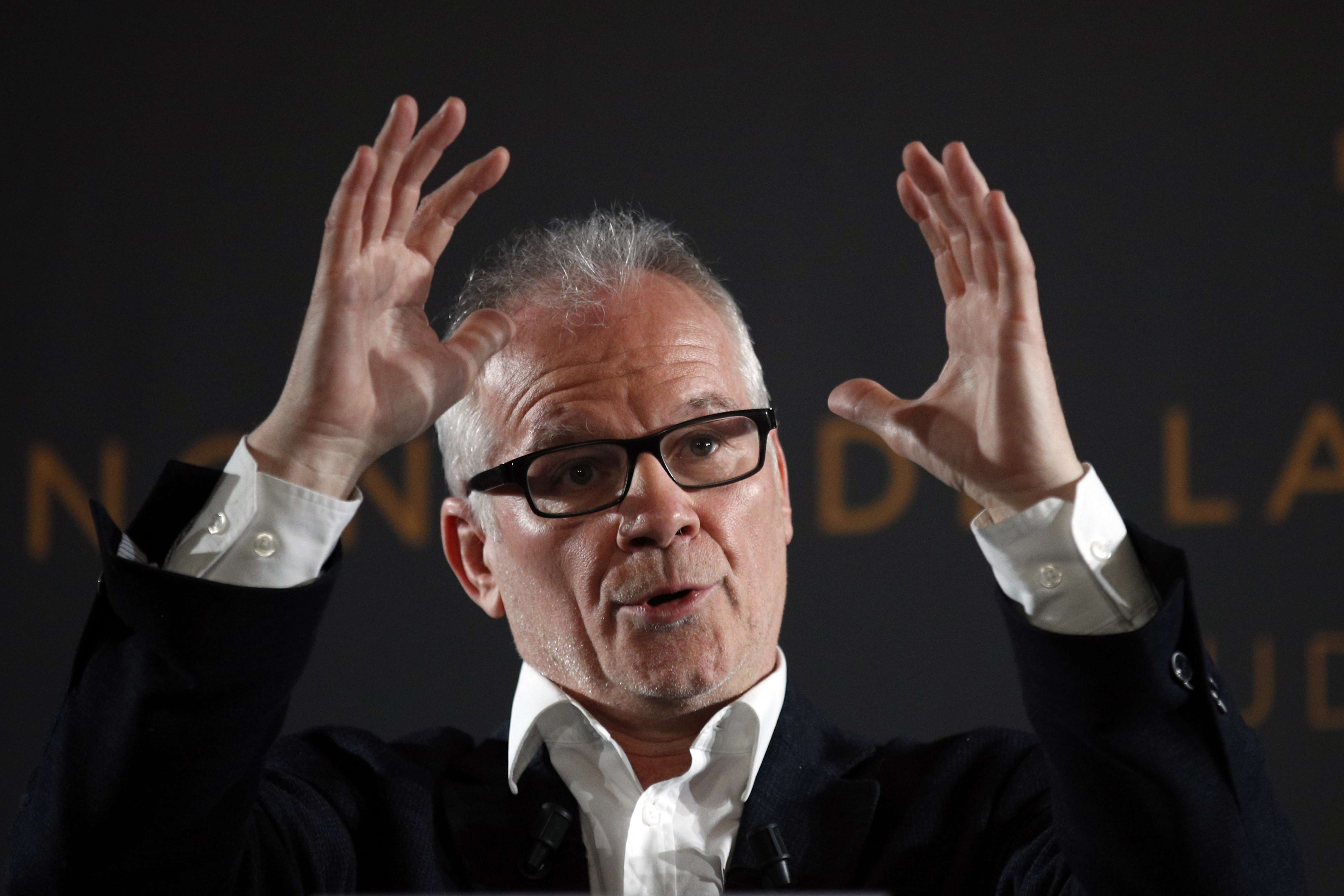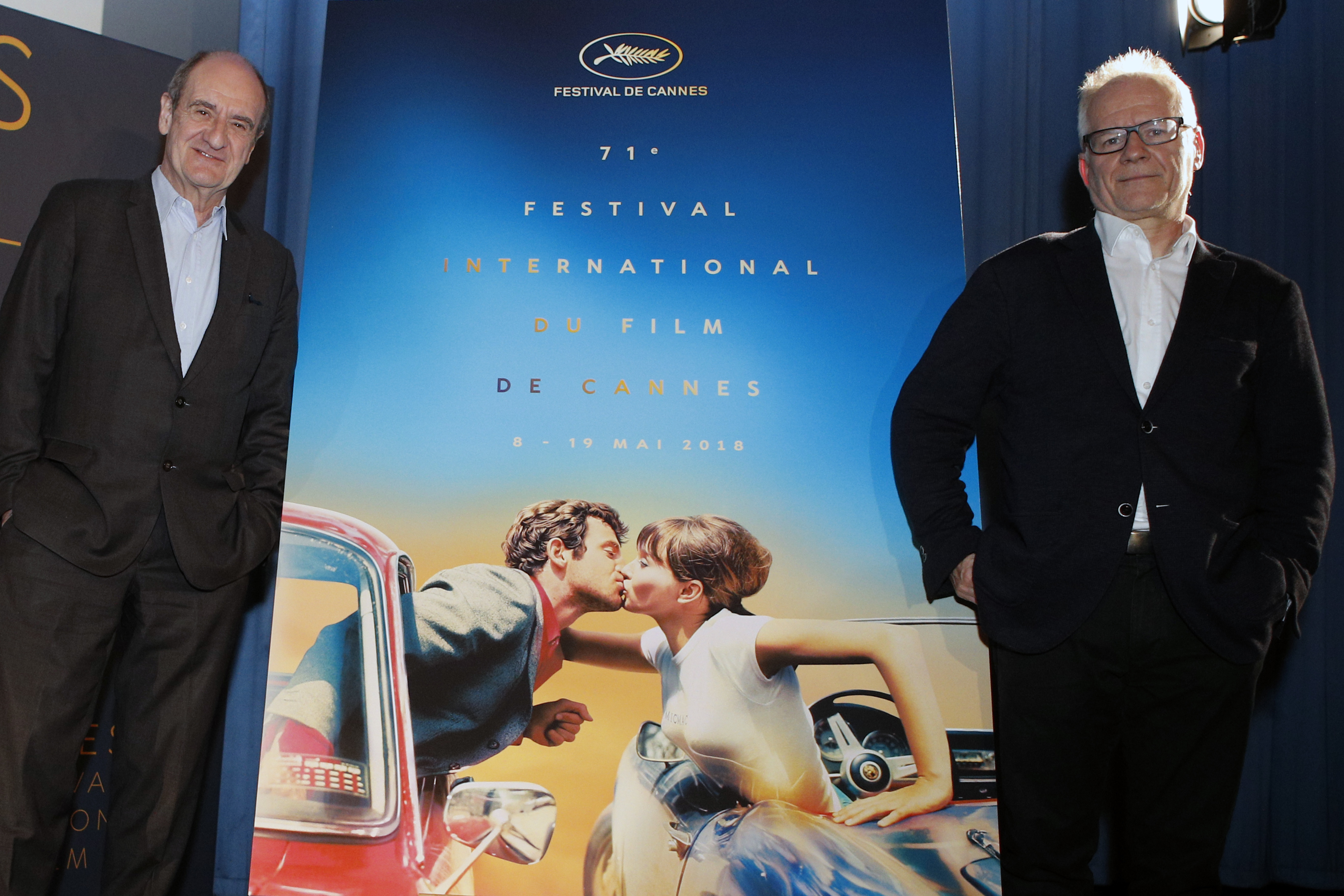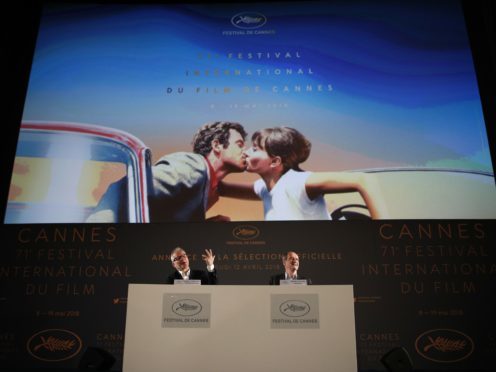The director of the Cannes Film Festival has called the allegations of sexual misconduct against Harvey Weinstein “an earthquake” for the movie industry.
But Thierry Fremaux said the quality of films, not gender quotas, remained the top factor in selecting this year’s line-up.
Organisers unveiled the 18 films competing for the Palme d’Or prize next month, with a line-up that includes new movies by Spike Lee and Jean-Luc Godard.
“The world is not the same anymore,” Mr Fremaux told reporters, referring to the Weinstein scandal.

“But the movies we selected have been chosen for their intrinsic qualities. There will never be a positive discrimination.”
Although Mr Fremaux said he recognised the importance of the #MeToo and Time’s Up movements, he said the selection process for the festival should not include gender quotas, and that all the female directors he has spoken to agreed with him.
Only three female directors – Nadine Labaki, Alice Rohrwacher and Eva Husson – are on the list of 18 competing movies.
Mr Fremaux said a fourth female filmmaker could be added to the competition before the May 8-19 event starts on the French Riviera.
“It’s true that they are very rare, but there are more and more female directors,” Mr Fremaux said.
“And I have to say that – Kathryn Bigelow aside – all the female directors who broke through over the last three decades came here to show their movies.”
Mr Fremaux added that his team will discuss their pay equality practices. He noted that more women than men already worked for the festival.
While acknowledging that only one female director has won the festival’s top prize – Jane Campion for The Piano back in 1993 – Mr Fremaux said two women, Cate Blanchett and Ursula Meier, will preside over the official competition and the Golden Camera juries this year.
He said this year’s selection, which also includes Oscar-winning director Pawel Pawlikowski’s new film Zimna Wojna (Cold War), will help promote new faces.
“There are some people one might not have expected to be there,” he said.

Among those invited to compete are dissident Iranian film director Jafar Panahi for Three Faces and Russian filmmaker Kirill Serebrennikov.
Panahi, who won the Golden Bear for best film in Berlin in 2015 but has been banned from leaving his country, was held in custody in 2010 for his criticism of Iran.
Serebrennikov, who is now under house arrest in Russia, will compete with Leto (Summer), a film depicting the life of a Soviet rock musician and the Leningrad underground music scene in the 1980s.
The competition at Cannes this year includes Lee’s BlacKkKlansman, which will open in US cinemas on August 10 – the one-year anniversary of the violent protests in Charlottesville, Virginia, where white nationalists marched and a protester was killed.
The film is about the real-life story of Ron Stallworth, a black police officer in Colorado who went undercover in 1978 to infiltrate the Ku Klux Klan.
John David Washington plays Stallworth and Adam Driver plays his partner.
Godard’s movie Le Livre d’Image (The Image Book) is described as a “revolutionary song in five chapters”.
Mr Fremaux also addressed the festival’s tense relationship with Netflix a day after Ted Sarandos, the company’s chief content officer, said the streaming giant was pulling its films from the French festival.
Cannes had earlier banned any films without theatrical distribution in France from its top Palme d’Or competition, essentially ruling out Netflix movies.
In France, films cannot be released on home entertainment platforms until 36 months after their theatrical release.
“Despite appearances, we have a fruitful dialogue. Netflix is welcome in Cannes, let’s keep talking,” Mr Fremaux said.
The dispute, however, has prevented the restoration of Orson Welles’s unfinished film The Other Side Of The Wind from being included in the festival’s out-of-competition programme this year.
